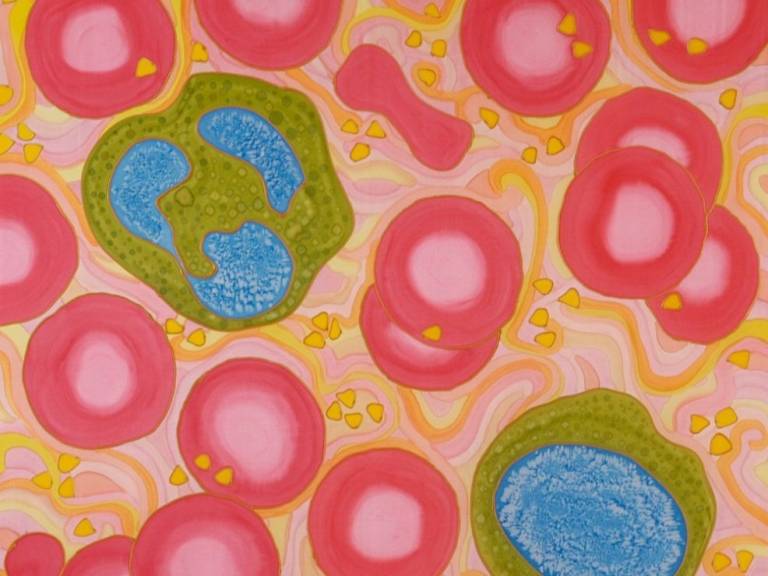UCL research leads to haemophilia gene therapy success
15 December 2017
UCL research is behind the first successful gene therapy trial to treat haemophilia A, the most common type of the disease.

The results of the trial, which were announced this week, found that over one year on from a single treatment with a gene therapy drug developed from the UCL research, participants with haemophilia A show normal levels of a previously missing protein, and are effectively cured.
Reseachers at the UCL Cancer Institute developed the haemophilia gene therapy treatment which was licensed in 2015 to the US biotech company Biomarin. The licensing led increased investment in the research and the acceleration of clinical trials.
Professor Amit Nathwani (UCL Medical Sciences), who co-led the research, said: "We are very proud to have been involved in the design and development of the gene therapy drug that has resulted in the phenomenal breakthrough for patients with haemophilia A.
"Developing gene therapy for haemophilia A was more difficult than haemophilia B, a related condition where we have previously had great success with gene therapy. It is great to see that the genetic engineering we performed in the laboratory has resulted in a drug that has the potential to cure haemophilia A. These results provide inspiration and hope for a range of monogenetic disorder that currently lack effective treatment."
Professor Nathwani and his colleague Professor Edward Tuddenham collaborated with St Jude's Children's Research Hospital in Tennessee to develop gene therapy treatments for the haemophilia A and B.
They developed new ways to deliver normal copies of defective proteins to restore the blood-clotting process in haemophilia patients, using a virus as a delivery vehicle. This treatment replaces the need for regular injections with a single-dose treatment, a life-changing approach for haemophilia patients.
The licensing of their research to Biomarin was carried out by UCL's technology transfer office, UCL Business.
In the trials in London, a single infusion of the gene therapy drug showed improved levels of the essential blood clotting protein Factor VIII, with 85 per cent of patients achieving normal or near-normal Factor VIII levels even many months after treatment.
There are around 2000 people with severe haemophilia A in the UK. A hereditary genetic condition dominantly affecting men, people with severe haemophilia A have virtually none of the protein factor VIII which is essential for blood to clot.
It puts those affected at risk of excessive bleeding even from the slightest injury as well as causing spontaneous internal bleeding, which can be life-threatening. Recurring bleeding into joints can also lead to progressive joint damage and arthritis.
The trials were carried out by researchers at Barts Health NHS Trust and Queen Mary University of London.
Links
- Professor Amit Nathwani's academic profile
- Professor Edward Tuddenham's academic profile
- UCL Cancer Institute
- UCL Medical Sciences
- UCL Business
Image
Blood attributed to Odra Noel
Media contact
Margaret-Anne Orgill tel:+44 203 1083845
Email: m.orgill@ucl.ac.uk
 Close
Close

